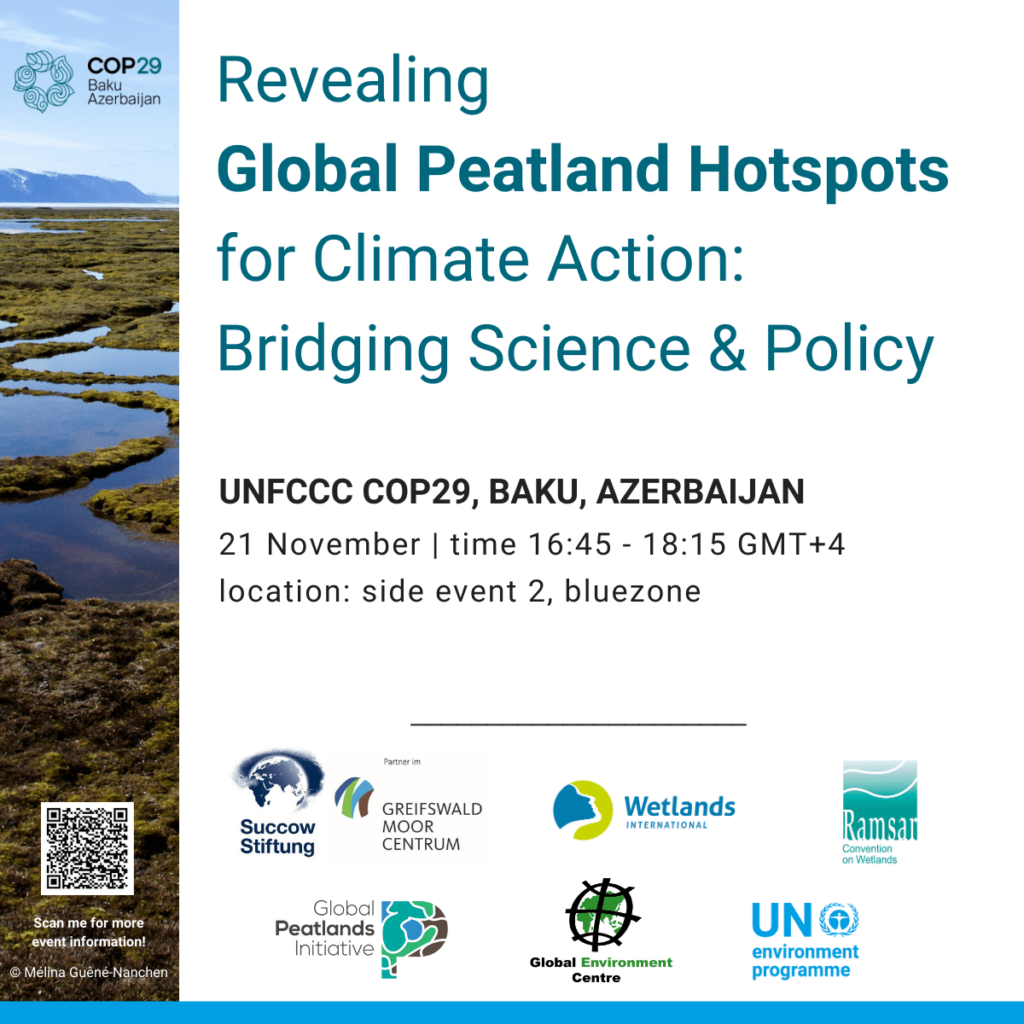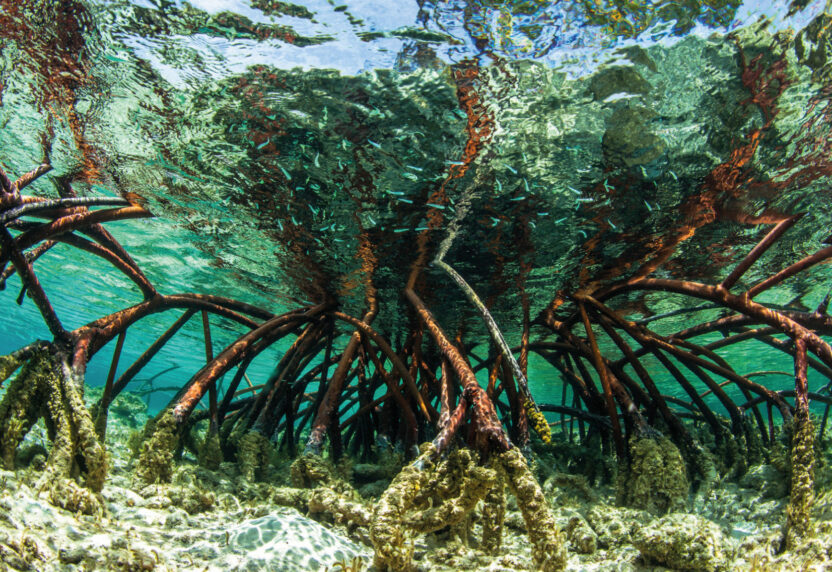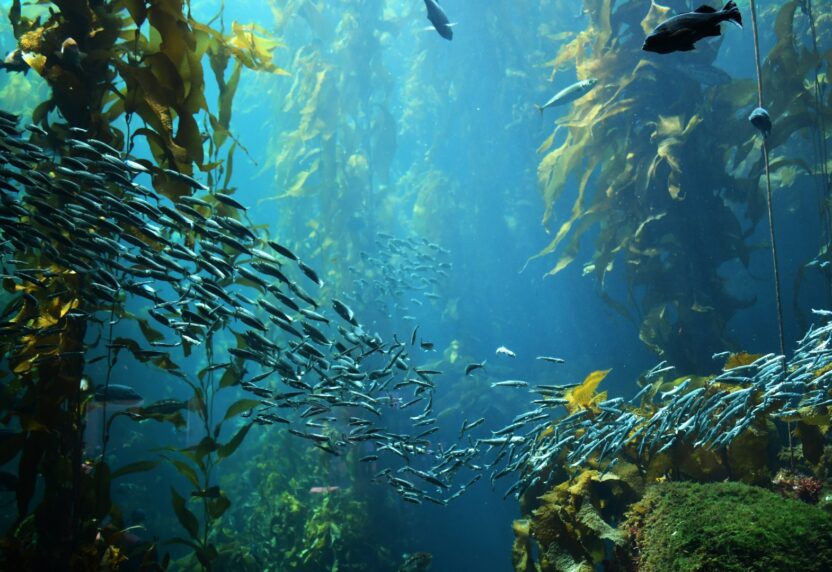
Wetlands International at UNFCCC COP29
Rivers, lakes, peatlands, and other wetlands are on the frontlines of the climate crisis. They are essential parts of earth’s natural carbon cycle and crucial to mitigating climate change. Peatlands, for example, though only covering about 3% of our planet’s land, store approximately twice the amount of carbon of all the world’s forests biomass combined. Along shallow coastal waters, unassuming seagrass meadows are estimated to be up to 40 times more efficient at capturing organic carbon than land forests. Conversely, the loss and degradation of wetlands releases stored soil carbon. Around 4% of anthropogenic emissions currently come from degraded peatlands alone.
Wetlands also help us adapt to climate change. Mangroves and other coastal wetlands safeguard shorelines against storm surges and sea level rise. Peatlands act like sponges, regulating the flow of water and reducing the impacts of both droughts and floods. In fact, an acre of wetland can store up to 1.5 million gallons of floodwater.
Yet, wetlands are the Earth’s most threatened ecosystem. Two-thirds of the world’s largest rivers are no longer free-flowing. Wetlands continue to be lost three times faster than forests. Human activities like drainage, conversion, and damming have fragmented and damaged wetlands the world over.
That’s why Wetlands International is at UNFCCC COP29 in Baku.
Governments, businesses, and civil society must collaborate to scale up the safeguarding and restoration of wetland ecosystems, as well as tackle the drivers that destroy wetlands. Wetland actions need to increasingly be included in Nationally Determined Contributions, as well as in national adaptation and disaster risk reduction plans.
Wednesday, 20 November
Turning the Tide: Translating Ocean-Climate Ambition into Action
Time: 18:00-19:30 AZT
Organisers: UK Government, Nature4Climate, Mangrove Breakthrough
Location: UK Pavilion
Co-led by the Mangrove Breakthrough NDC Task Force, this event explores the alignment of ocean and climate ambitions within NDCs.
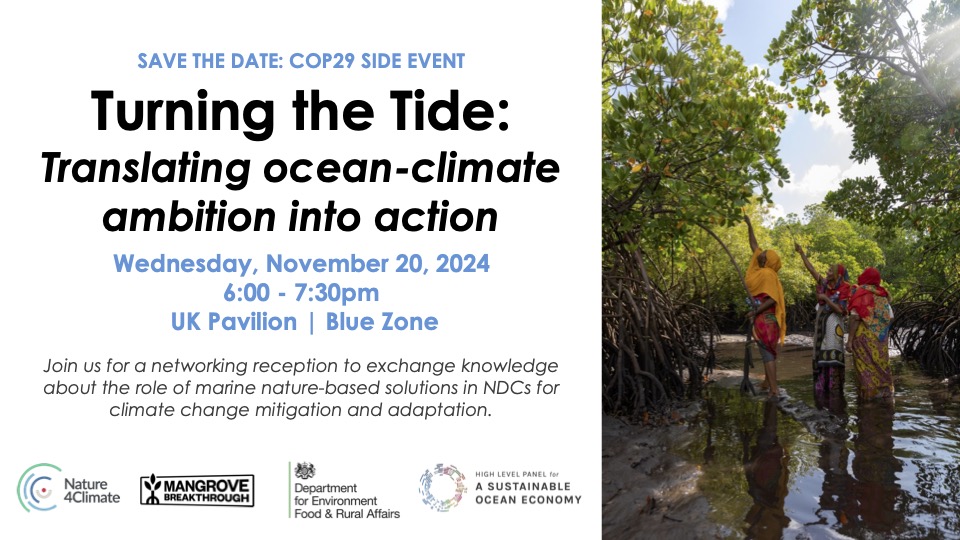
Thursday, 21 November
Ocean Breakthroughs: Towards Resilient Economies and Societies
Time: 11:00-12:30 AZT
Location: Nasimi, Zone B
An MP-GCA Ocean Action event focusing on how ocean-based solutions drive resilient economic models.
Mangrove in NDC’s: Scaling up Implementation for People, Climate, and Nature
Time: 12:30-13:30 AZT
Location: NDC Partnership Pavilion
In partnership with FAO and Pew Charitable Trusts, this session focuses on embedding mangrove conservation into NDCs for broader climate impact.
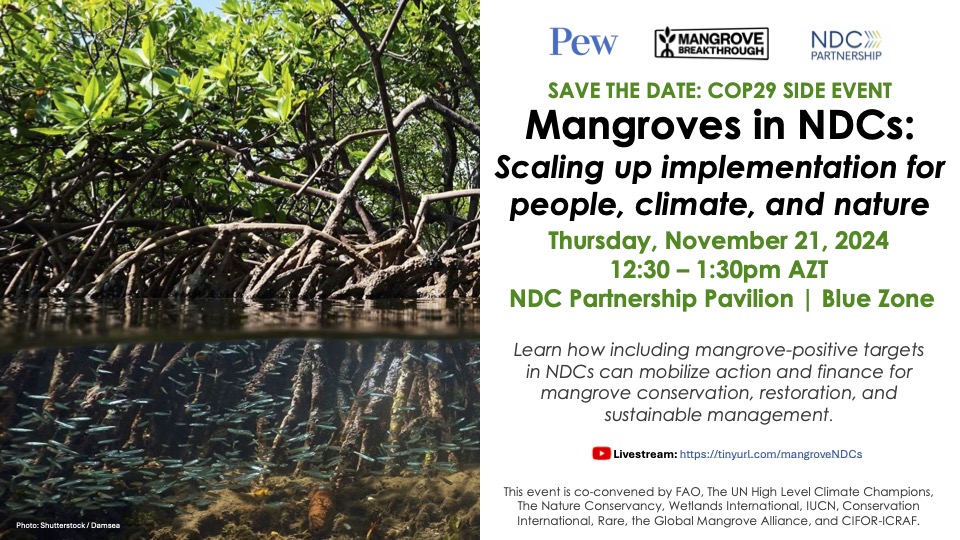
Achieving the Mangrove Breakthrough: Global Action on Mangrove Restoration and Protection
Time: 14:00-15:00 AZT
Location: UAE Pavilion
Co-led by the Mangrove Breakthrough initiative, this event addresses global commitments to mangrove restoration.
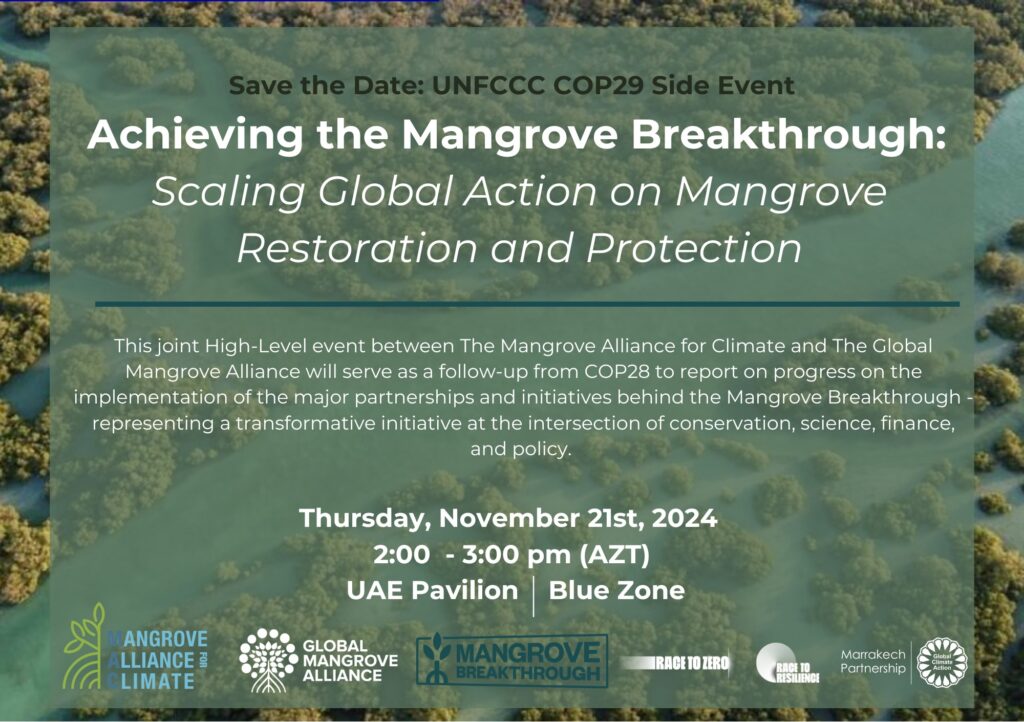
Ocean Breakthroughs for 1.5°C: Scaling Ambitions in NDCs
Time: 15:30-17:00 AZT
Location: Mughman, Zone B
Part of the MP-GCA Oceans & Coastal Zone Implementation Lab, this session discusses pathways to meet climate targets through ocean-based solutions.
Revealing Global Peatland Hotspots for climate action: bridging science and policy
Time: 16:45-18:15 AZT
Location: Side Event 2, Blue Zone
The event is a call to action for scaling up efforts under the Global Peatlands Initiative, towards peatland conservation, restoration, and sustainable management. By presenting the latest knowledge in an engaging format, it aims to attract a broad audience and raise awareness of the vital role of peatlands found in nearly every country.
